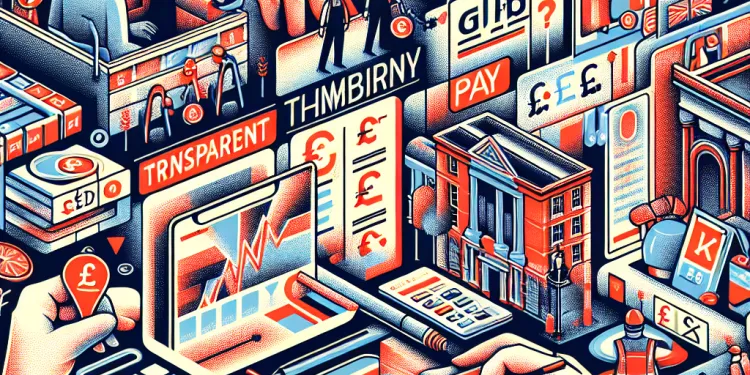
Find Help
More Items From Ergsy search
-
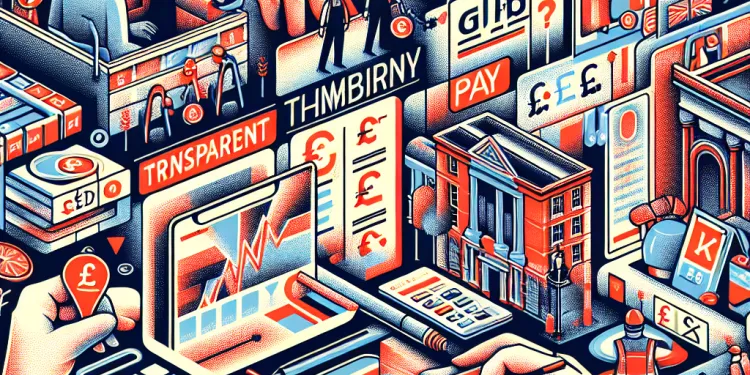
Do gig workers have the right to transparency in pay and fees?
Relevance: 100%
-
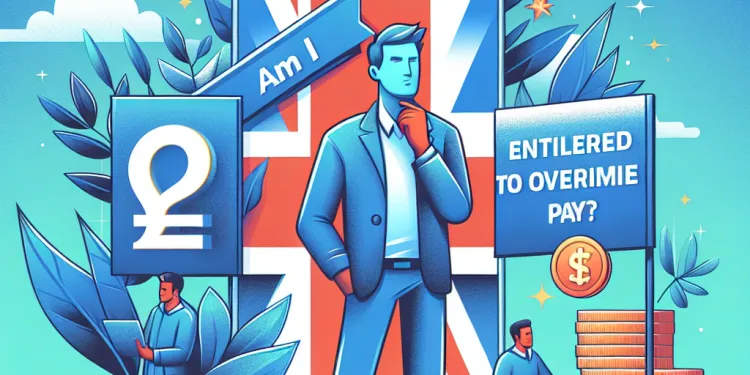
Am I entitled to overtime pay as a gig worker?
Relevance: 67%
-
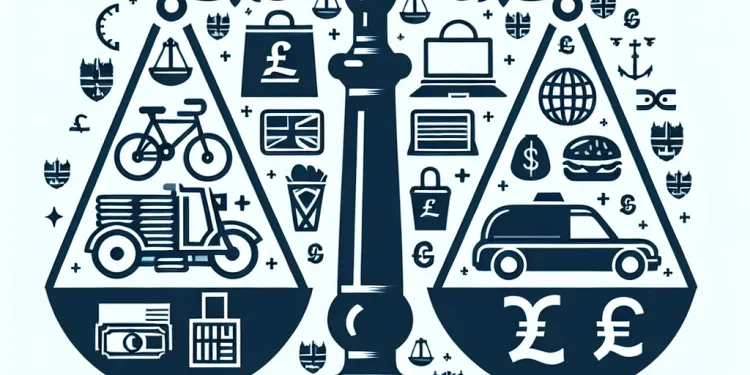
What are my rights as a Gig Worker?
Relevance: 58%
-
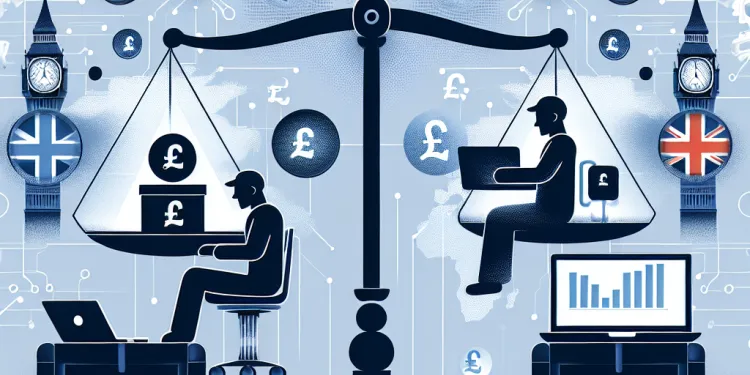
Are gig workers entitled to workers' compensation?
Relevance: 58%
-

Do gig workers have the right to unionize?
Relevance: 54%
-
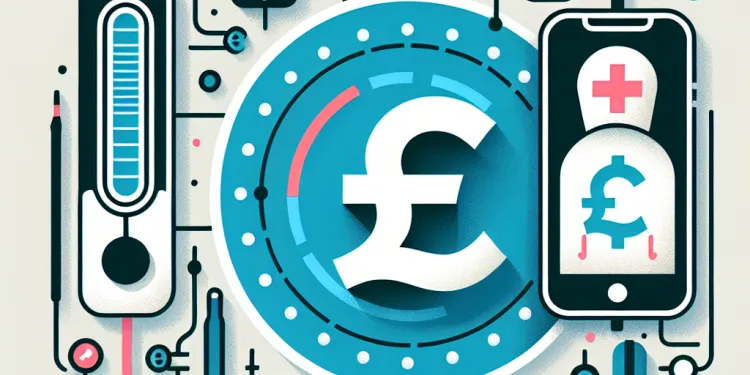
Are gig workers entitled to sick leave?
Relevance: 54%
-
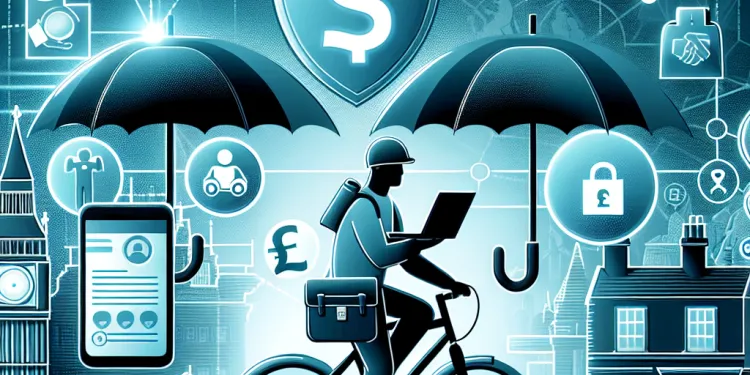
Do gig workers have access to unemployment benefits?
Relevance: 53%
-
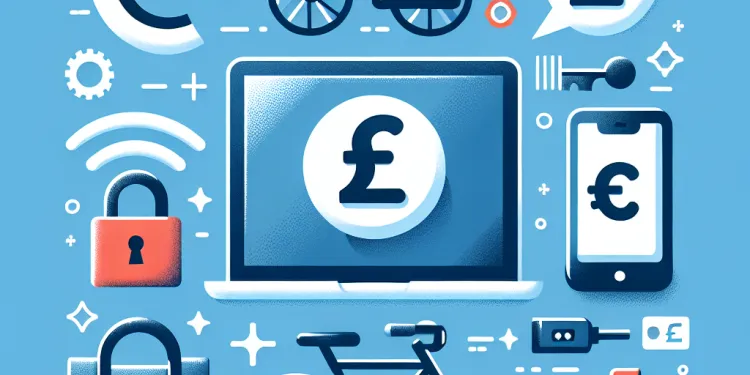
Is job security a right for gig workers?
Relevance: 52%
-

Do gig workers qualify for retirement benefits?
Relevance: 52%
-

Do gig workers have the right to a minimum wage?
Relevance: 51%
-

Are gig workers protected against wrongful termination?
Relevance: 51%
-

Can I receive health benefits as a gig worker?
Relevance: 50%
-
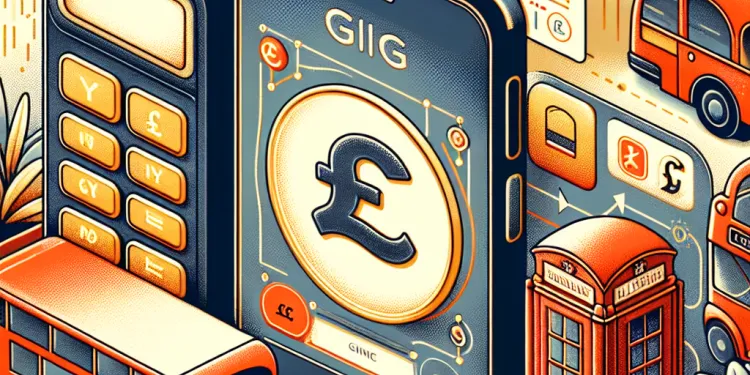
Can I claim expenses as a gig worker?
Relevance: 48%
-
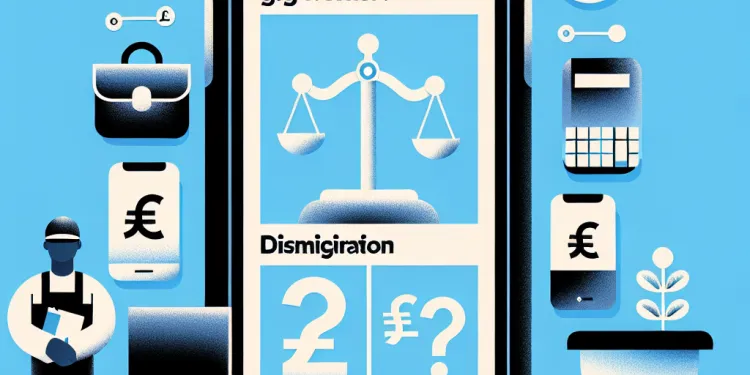
What can I do if I face discrimination as a gig worker?
Relevance: 48%
-
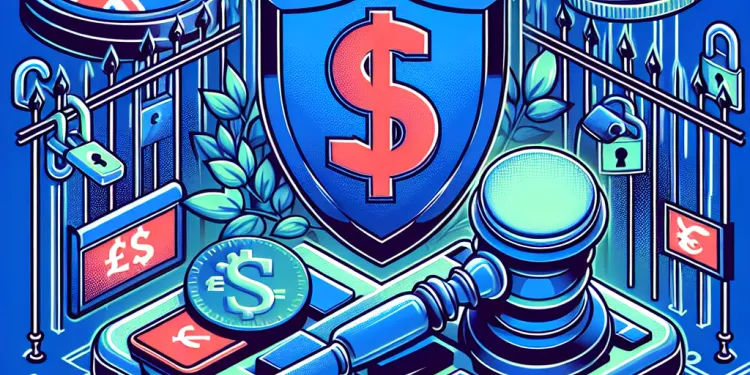
Do gig workers have intellectual property rights over their work?
Relevance: 48%
-
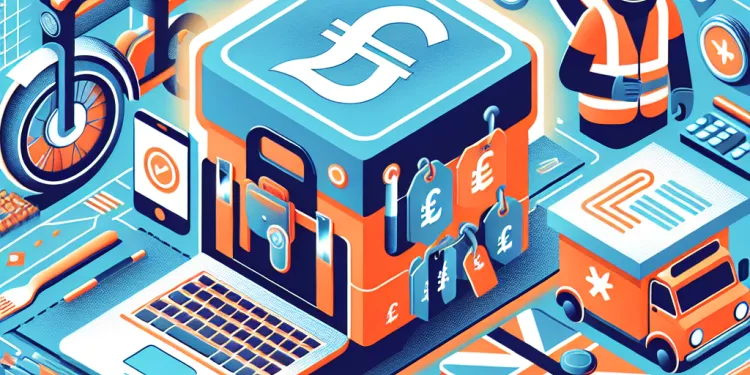
What are my rights regarding workplace safety as a gig worker?
Relevance: 46%
-
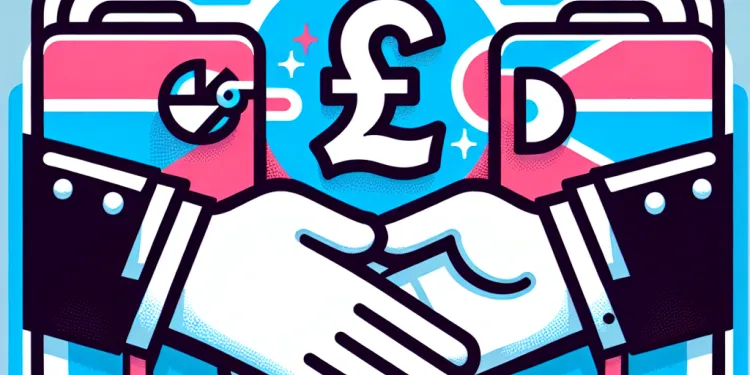
How can I address payment disputes as a gig worker?
Relevance: 42%
-
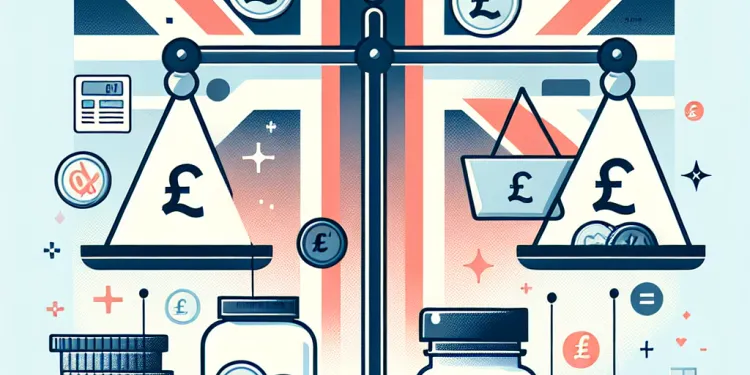
What role do regulatory bodies play in fee transparency?
Relevance: 42%
-

Why is there a call for greater transparency in banking fees?
Relevance: 42%
-
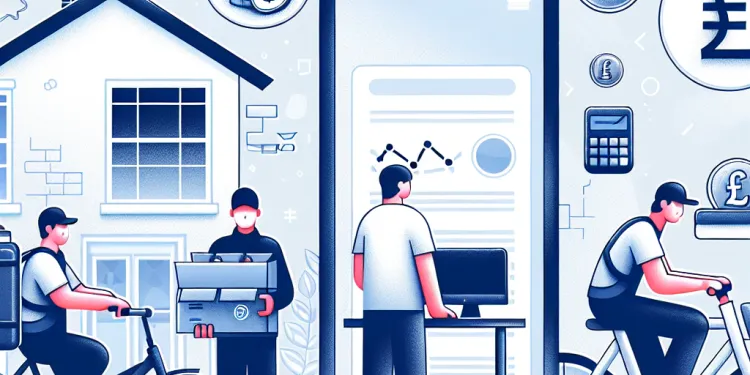
Am I considered an employee if I am a gig worker?
Relevance: 41%
-

Employment Tribunal Cases Surge Amidst Gig Economy Debate
Relevance: 40%
-

What role do customer service representatives play in fee transparency?
Relevance: 39%
-

How can government policies influence transparency in banking fees?
Relevance: 39%
-

What initiatives are in place to address banking fee transparency?
Relevance: 38%
-
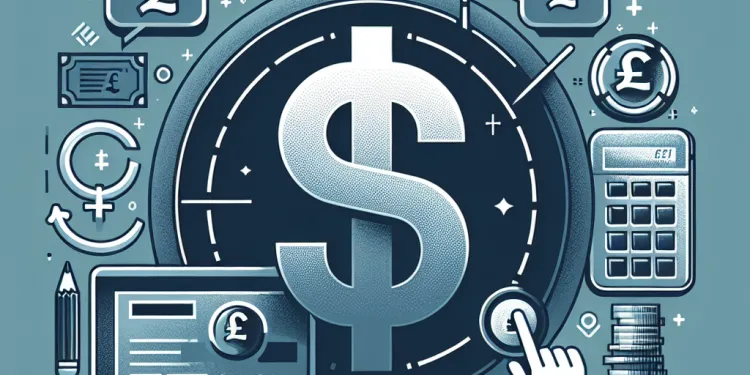
How can banks improve transparency regarding their fees?
Relevance: 38%
-

Calls for Greater Transparency in Banking Fees as Complaints Rise
Relevance: 38%
-

How does technology help in enhancing transparency in banking fees?
Relevance: 37%
-
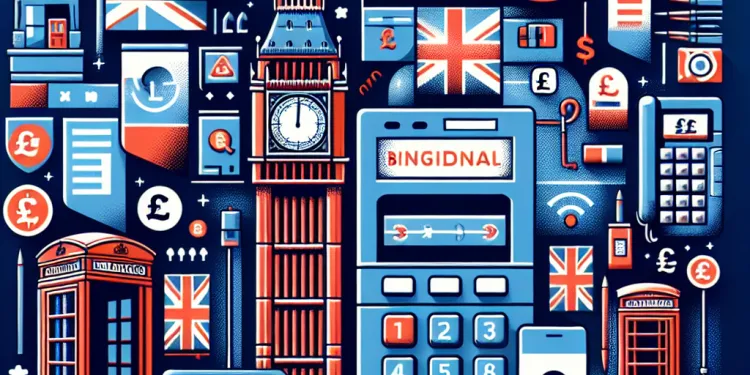
What actions are consumer rights groups taking regarding banking fee transparency?
Relevance: 34%
-
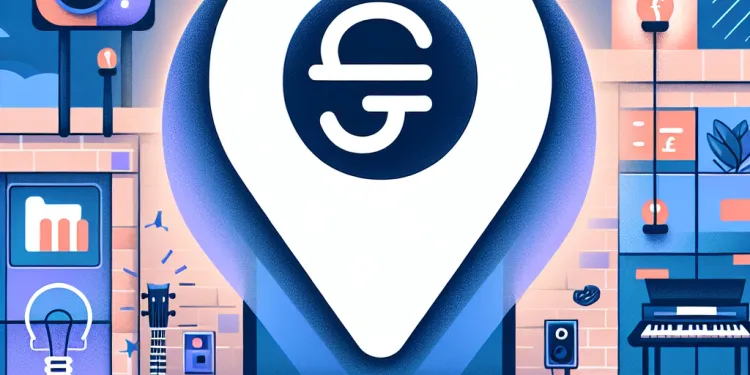
Can a gig platform deactivate my account without reason?
Relevance: 33%
-

What happens if I don't pay my TV license fee?
Relevance: 32%
-
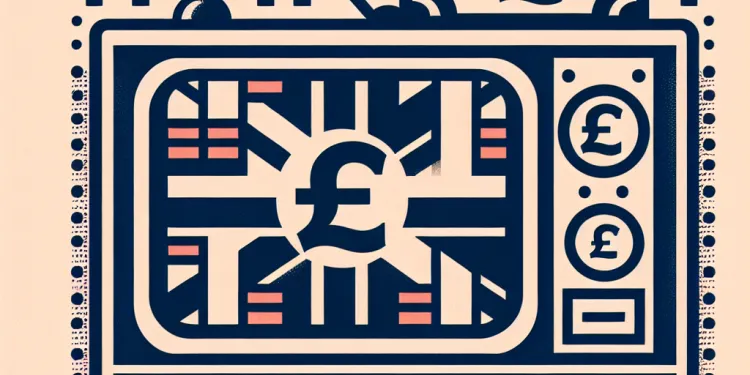
Do I need to pay the television license fee in the UK?
Relevance: 32%
-

Are zero-hour contract workers entitled to the National Living Wage?
Relevance: 28%
-
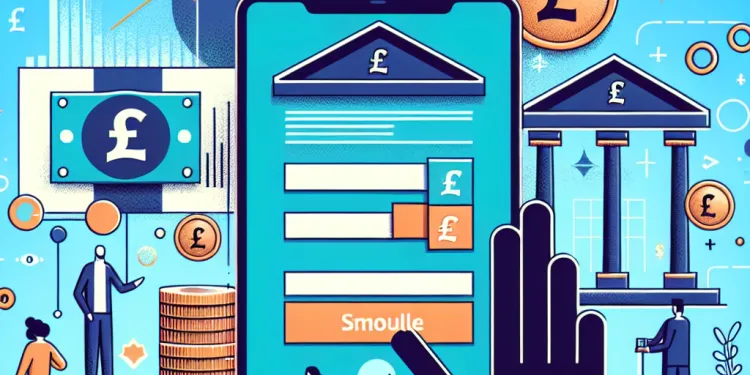
What feedback do customers give regarding banking fees?
Relevance: 27%
-

Are there any hidden fees with Monzo or Revolut?
Relevance: 25%
-

How do banking fees impact financial inclusion?
Relevance: 25%
-

Are there any hidden fees I should be aware of?
Relevance: 25%
-

Are employers legally required to pay the National Living Wage?
Relevance: 25%
-

Lone Workers
Relevance: 24%
-
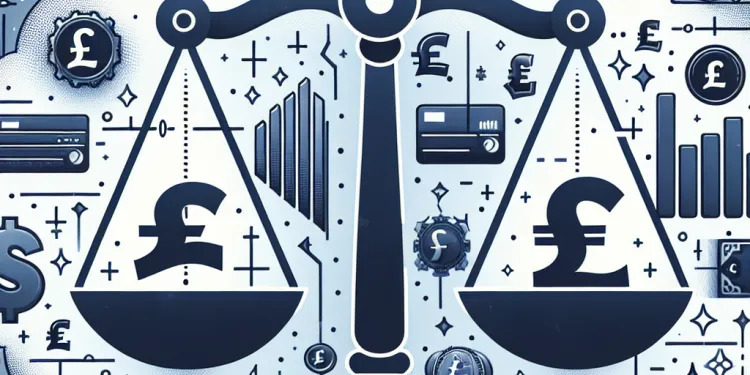
What are the consequences for banks not complying with transparency standards?
Relevance: 24%
-

Are there specific banking services more prone to opaque fee structures?
Relevance: 24%
Introduction
The gig economy has become a significant part of the UK workforce, with platforms like Uber, Deliveroo, and TaskRabbit providing flexible work opportunities. However, this economy raises questions about the rights of gig workers, particularly regarding transparency in pay and fees. This article explores whether gig workers have or should have the right to clear information about their earnings and any associated costs.
The Current State of Gig Work in the UK
Gig workers are often considered self-employed, which means they typically lack the employment rights that full-time employees have. This classification affects their entitlement to minimum wage, holiday pay, and sick leave. However, recent court rulings, such as the Supreme Court's decision on Uber drivers in 2021, have started to shift this perspective, acknowledging the need for improved worker rights.
Why Transparency in Pay and Fees Is Crucial
Transparency is vital for gig workers to make informed decisions about the jobs they take up. Without a clear understanding of how pay is calculated and what fees are deducted, workers may struggle to assess whether a gig is financially viable. This lack of transparency can lead to situations where workers are effectively working below the minimum wage once all costs are considered.
Challenges in Achieving Transparency
Achieving transparency in the gig economy is fraught with challenges. Platforms often have complex algorithms that determine pay rates, which can vary based on demand, location, and other factors. Additionally, fees for using the platform, service charges, and other costs are not always clearly communicated. Workers have called for more straightforward breakdowns of pay and deductions.
Steps Towards Greater Transparency
Efforts are underway to improve transparency in the gig economy. There are calls for legislation that mandates clearer communication of pay and fees, akin to the clarity required of traditional employers. Some platforms have started implementing changes, such as providing pay estimates before a task begins, but more comprehensive measures may be necessary to ensure fairness.
Conclusion
The question of whether gig workers in the UK have the right to transparency in pay and fees touches on broader issues of worker rights and protections. While progress is being made, there is a significant need for both legislative action and platform accountability to ensure that gig workers can operate with confidence and security in their roles. Transparency is not just a right but a necessity for the fair treatment of gig workers in the rapidly growing gig economy.
Introduction
Many people in the UK work using apps like Uber, Deliveroo, and TaskRabbit. These jobs are called gig work and let people work when they want. But there are questions about their rights, like knowing how much money they make and what they pay in fees. This page talks about whether gig workers should clearly know their pay and fees.
What Gig Work Looks Like in the UK
Gig workers are often called self-employed. This means they don’t get the same rights as full-time workers, like paid holidays or sick leave. But things are starting to change. For example, in 2021, a court said that Uber drivers need better rights, like more pay fairness.
Why Knowing Pay and Fees is Important
It is important for gig workers to know how much they will be paid. If they do not know this, they might pick jobs that do not pay well. They might end up making less than the minimum wage once they pay all the costs. Knowing pay and fees helps gig workers choose better jobs.
Problems with Showing Pay Information
It is not easy for gig companies to be clear about pay. The pay can change depending on how busy it is, where the job is, and other things. Also, fees and charges are sometimes not clear. Workers want simple explanations of what they earn and pay.
How to Make Pay and Fees Clearer
People are trying to make things clearer for gig workers. Some want new rules to make companies show pay and fees clearly, like normal jobs do. Some gig companies are starting to tell workers what they will earn before a job, but more needs to be done.
Conclusion
The question of knowing pay and fees is an important part of gig workers’ rights. While some good changes are happening, more help is needed from both laws and companies. Gig workers need to know they are being treated fairly. Knowing pay and fees is not just a choice, it is important for fair work.
Frequently Asked Questions
What is meant by transparency in pay and fees for gig workers?
Transparency in pay and fees means that gig workers are clearly informed about how much they will be paid and any fees that might be deducted from their earnings before they accept a job or task.
Do gig workers have a legal right to transparency in pay?
In some jurisdictions, laws require that gig workers be informed about their pay and fees upfront, but this can vary by location and the platform they are working for.
Why is pay transparency important for gig workers?
Pay transparency helps gig workers make informed decisions about which gigs to accept based on fair compensation for their work and expenses.
Are gig platforms required to disclose fees to workers?
Some gig platforms are required by law to disclose fees and how pay is calculated, but the specifics can vary depending on the local regulations.
What information should gig workers receive about their pay?
Gig workers should receive information about base pay, potential bonuses, service fees, and any deductions before they accept a job.
Can gig workers challenge discrepancies in pay?
Gig workers can usually report discrepancies to the platform they work for, although the recourse available might depend on the platform's policies.
How can a gig worker ensure they are being paid fairly?
Gig workers should track their work hours, payment details, and expenses and compare them against the information provided by the platform. They can also connect with other workers to share information.
What are some common fees deducted from gig worker earnings?
Common fees include service fees for using the platform, transaction fees, or any necessary equipment rental fees associated with the job.
Are gig platforms transparent about how tips are distributed?
Policies on how tips are distributed can vary by platform. Some are transparent about distributing 100% of tips to workers, while others may apply tips towards service fees.
Is it common for gig workers to face hidden fees?
Some gig workers report finding hidden fees that were not disclosed upfront, which highlights the importance of platforms being transparent about all charges.
What role do consumer protection laws play in pay transparency?
Consumer protection laws, when applicable, can require companies to disclose important information to users, including gig workers, about pay and fees.
How can transparency be improved for gig workers?
Transparency can be improved through regulations requiring disclosure of pay and fees, and through platforms clearly communicating this information and ensuring data accuracy.
Do international gig platforms have the same transparency requirements as local ones?
International gig platforms might be subject to different regulations depending on the countries they operate in, affecting their transparency requirements.
What is the impact of lack of pay transparency on gig workers?
Lack of pay transparency can lead to financial insecurity among gig workers, as they might not be able to predict their earnings accurately.
Can legislative changes improve pay transparency for gig workers?
Yes, legislative changes can mandate better disclosure practices, ensuring gig workers receive clear information on their pay and fees.
How does gig work transparency compare to traditional employment?
Traditional employment often has clearer regulations for pay transparency, while gig work is less regulated, leading to more variation in transparency practices.
What initiatives exist to promote pay transparency for gig workers?
Some organizations and advocacy groups are pushing for legislative changes and creating platforms or forums to share information and experiences among gig workers.
Do gig workers have the ability to negotiate their pay and fees?
Typically, gig workers have limited ability to negotiate pay and fees directly, but they can choose which gigs to accept based on the offered pay information if disclosed.
Are there specific industries where gig workers experience more transparency?
Transparency levels can vary widely by industry; however, some sectors like transportation and delivery may have slightly more established norms for disclosure compared to others.
Are gig platforms incentivized to improve pay transparency?
Platforms may be incentivized to improve transparency to maintain a satisfied and engaged workforce and to comply with potential regulatory requirements.
What does being clear about pay and fees mean for gig workers?
When people talk about being clear about pay and fees, they mean gig workers should easily know how much money they will make. Gig workers should also know what they have to pay or give up from their earnings.
If you're a gig worker, it's important to know:
- How much money you will earn for each job.
- Any extra costs or fees you have to pay.
If you find it hard to understand, you can:
- Ask questions if something is not clear.
- Use a calculator to check how much you will earn and pay.
- Talk to other gig workers about their experiences.
When we talk about transparency in pay and fees, it means that gig workers know exactly how much money they will get. They also know about any money that might be taken away from their earnings before they say yes to a job or task.
Can gig workers know how much they will be paid?
In some places, there are rules that say gig workers must know how much they will be paid and what the fees are before they start working. But, these rules can be different depending on where they are and which company they work for.
Why is it good for gig workers to know their pay?
It's important for people who work gigs to know how much they will get paid. This helps them make good choices about work. They can plan their money better and know if the job is fair. Seeing pay clearly helps everyone get treated well.
Pay transparency helps gig workers know how much money they'll make. This way, they can decide which jobs are good for them. They can see if the pay is fair for the work they do and the costs they have.
Do gig platforms have to tell workers about fees?
Gig platforms need to tell workers if there are any fees. Fees are extra money that workers might have to pay. This helps workers understand how much money they will earn. Workers should ask if they are unsure about fees.
Tools like text-to-speech can help read this out loud. Highlighting or underlining words can help you remember them. Always ask for help if you don't understand.
Some job websites must tell you about the fees and how they figure out pay. But the details can change based on the rules where you live.
What should gig workers know about their pay?
Gig workers should know how much money they will make. This is called pay.
Here are some things they should know:
- How much money they get for each job.
- When they will get paid.
- If there are any extra payments or bonuses.
- Any costs or fees taken from their pay.
Using a calculator can help understand the money.
Apps can also remind workers when they will get paid.
People who do gig work should know how much money they will get before they say yes to a job. This means they need to know about:
- Base pay - the money they get for doing the job.
- Bonuses - extra money they might get.
- Service fees - any extra costs.
- Deductions - any money that will be taken away.
It can help to use tools like reading apps or ask someone to help you understand the information.
Can gig workers ask about pay differences?
Do you work gigs, like driving or deliveries?
If your pay seems wrong, you can speak up.
Here are some ways to get help:
- Talk to your boss or the company.
- Keep records of your work and pay.
- Ask other gig workers for advice.
- Look online for gig worker support groups.
Remember, it's okay to ask questions about your pay.
People who do short jobs, called gig workers, can tell the company if there is a mistake. What the company does to help might change depending on their rules.
How can a gig worker make sure they get fair pay?
Here is some advice for gig workers:
- Ask other gig workers about pay. This can help you know what is fair.
- Check online to see the usual pay for your job type.
- Keep track of your hours and jobs in a notebook or app.
- Use a calculator to add up your pay and hours. This helps make sure the pay is right.
- Look for apps or websites that can help you know what is fair pay. Some apps are made just for gig workers.
Getting fair pay is important. If your pay is not fair, think about asking for more or finding other gigs.
People who do gig work should keep a record of their work hours, payment details, and expenses. They should check this information with what the company says. They can also talk to other workers to share info.
What are some costs gig workers pay from their earnings?
There are some fees you might have to pay. These could be:
- Fees for using the website or app.
- Fees for doing transactions, like buying or selling things.
- Fees to rent any tools or gear you need for the job.
It's a good idea to ask someone you trust if you’re not sure about these fees. They can help explain things. There are also online tools that can explain things in a simple way.
Do gig platforms clearly explain how tips are shared?
Different companies have different rules about where tips go. Some companies give all the tips to workers. Other companies use the tips to pay for fees.
Do gig workers often pay secret fees?
Some workers find surprise fees that they didn't know about. This shows why it's important for companies to be clear about all the costs.
How do rules help people understand pay?
Consumer protection laws are rules. They help make sure people know what they are paid. This is called pay transparency. It means you can see and understand pay information.
If you need help to understand pay information, you can:
- Ask someone you trust, like a family member or a friend.
- Use online tools that explain pay in simple words.
There are special laws that help keep people safe when they buy things. These laws can also help workers, like those who do gig jobs. Sometimes, businesses have to tell these workers important things, like how much they will get paid and any extra costs they might have to pay.
How can we help gig workers see things more clearly?
Gig workers do different jobs for various companies. It’s important they understand what they will get paid and what work they need to do.
Here are some ways to help gig workers:
- Clear Pay Information: Make sure it is easy to see how much money they will earn for each job.
- Job Details: Give clear details about what the job is before they accept it.
- Supportive Tools: Use apps or tools that help gig workers manage their jobs and pay. Some tools can show wages and hours worked.
- Ask Questions: Encourage workers to ask questions if things are not clear.
We can make things clearer if we have rules that tell companies to share their pay and fees. Websites can also help by showing this information in a way that is easy to understand and making sure the information is correct.
Do gig platforms from other countries follow the same rules about being clear as the ones in our country?
Gig platforms are websites or apps where you can find short jobs.
International means from other countries.
Transparency means being clear and open.
Do you want to make sure you know the rules for these platforms? You can ask for help from someone who knows a lot about this, like a family member, teacher, or friend. You can also use tools like text-to-speech to hear the information read aloud, which might help you understand better.
Gig platforms that work in different countries may have different rules to follow. These rules can change how much information they have to share with people.
How does not knowing their pay affect gig workers?
When gig workers do not know how much they will earn, it can be hard for them to plan their money. Gig workers are people who work for different companies and do small jobs, like driving a car or delivering food.
Not knowing their pay means they might worry about having enough money for rent, food, or bills.
To help gig workers, companies can show how much workers will get paid for each job. This way, gig workers can make better choices about which jobs to take.
Support tools like budget apps can help gig workers keep track of their money.
When you don’t know how much you will be paid, it can make gig workers feel worried about money. They might not know how much money they will make.
Can new laws help gig workers know how much they will be paid?
Some workers do jobs through apps or websites. They are called gig workers.
They might not know how much money they will get for a job.
New laws could help them see payment details clearly.
Reading tools can help better understand these changes.
Yes, new laws can make companies tell gig workers more about their pay and fees. This helps gig workers understand how much money they will get.
How is gig work different from regular jobs?
Regular jobs usually have clear rules about how people get paid. Gig work doesn't have as many rules, so it might be harder to know how much people get paid.
If you find it hard to read or understand about jobs, you can use things like simple charts, pictures, or apps that help explain these things. Asking for help from someone you trust can also make it easier.
What is being done to help gig workers know what they will be paid?
Here is what is happening to help gig workers:
- Companies are sharing more information about pay.
- There are websites that compare pay for different jobs.
- Some places have rules so pay is clear to everyone.
- People can talk to each other about how much they earn.
Tools that can help:
- Use apps that show how much you might earn for a job.
- Join groups online where people talk about pay.
- Ask others about how much they get paid for their work.
Some groups are working to change laws. They are also making places where gig workers can talk and share their stories.
Can gig workers talk about their pay and fees?
Gig workers are people who do short jobs, like driving or delivering food.
They might want to ask for more money for their work. This is called negotiating.
Some gig workers can talk to the company about how much they get paid. Others might not have this choice.
If you are a gig worker and want to ask for more pay, try talking to the person or company who gives you the job.
You can also use helpful tools like budget planners or online forums where gig workers share tips.
Gig workers don't usually get to talk about their pay or fees, but they can choose which jobs to take based on how much money is offered, if they know about it.
Do gig workers see things clearly in some jobs?
How open companies are can be different in each industry. But some jobs, like transportation and delivery, might share more information than others.
Do gig platforms have reasons to make pay clearer?
Platforms might want to be more open and honest. This helps keep workers happy and busy. It also helps them follow the rules.
Useful Links
This website offers general information and is not a substitute for professional advice.
Always seek guidance from qualified professionals.
If you have any medical concerns or need urgent help, contact a healthcare professional or emergency services immediately.
Some of this content was generated with AI assistance. We’ve done our best to keep it accurate, helpful, and human-friendly.
- Ergsy carfully checks the information in the videos we provide here.
- Videos shown by Youtube after a video has completed, have NOT been reviewed by ERGSY.
- To view, click the arrow in centre of video.
- Most of the videos you find here will have subtitles and/or closed captions available.
- You may need to turn these on, and choose your preferred language.
- Go to the video you'd like to watch.
- If closed captions (CC) are available, settings will be visible on the bottom right of the video player.
- To turn on Captions, click settings .
- To turn off Captions, click settings again.
More Items From Ergsy search
-

Do gig workers have the right to transparency in pay and fees?
Relevance: 100%
-

Am I entitled to overtime pay as a gig worker?
Relevance: 67%
-

What are my rights as a Gig Worker?
Relevance: 58%
-

Are gig workers entitled to workers' compensation?
Relevance: 58%
-

Do gig workers have the right to unionize?
Relevance: 54%
-

Are gig workers entitled to sick leave?
Relevance: 54%
-

Do gig workers have access to unemployment benefits?
Relevance: 53%
-

Is job security a right for gig workers?
Relevance: 52%
-

Do gig workers qualify for retirement benefits?
Relevance: 52%
-

Do gig workers have the right to a minimum wage?
Relevance: 51%
-

Are gig workers protected against wrongful termination?
Relevance: 51%
-

Can I receive health benefits as a gig worker?
Relevance: 50%
-

Can I claim expenses as a gig worker?
Relevance: 48%
-

What can I do if I face discrimination as a gig worker?
Relevance: 48%
-

Do gig workers have intellectual property rights over their work?
Relevance: 48%
-

What are my rights regarding workplace safety as a gig worker?
Relevance: 46%
-

How can I address payment disputes as a gig worker?
Relevance: 42%
-

What role do regulatory bodies play in fee transparency?
Relevance: 42%
-

Why is there a call for greater transparency in banking fees?
Relevance: 42%
-

Am I considered an employee if I am a gig worker?
Relevance: 41%
-

Employment Tribunal Cases Surge Amidst Gig Economy Debate
Relevance: 40%
-

What role do customer service representatives play in fee transparency?
Relevance: 39%
-

How can government policies influence transparency in banking fees?
Relevance: 39%
-

What initiatives are in place to address banking fee transparency?
Relevance: 38%
-

How can banks improve transparency regarding their fees?
Relevance: 38%
-

Calls for Greater Transparency in Banking Fees as Complaints Rise
Relevance: 38%
-

How does technology help in enhancing transparency in banking fees?
Relevance: 37%
-

What actions are consumer rights groups taking regarding banking fee transparency?
Relevance: 34%
-

Can a gig platform deactivate my account without reason?
Relevance: 33%
-

What happens if I don't pay my TV license fee?
Relevance: 32%
-

Do I need to pay the television license fee in the UK?
Relevance: 32%
-

Are zero-hour contract workers entitled to the National Living Wage?
Relevance: 28%
-

What feedback do customers give regarding banking fees?
Relevance: 27%
-

Are there any hidden fees with Monzo or Revolut?
Relevance: 25%
-

How do banking fees impact financial inclusion?
Relevance: 25%
-

Are there any hidden fees I should be aware of?
Relevance: 25%
-

Are employers legally required to pay the National Living Wage?
Relevance: 25%
-

Lone Workers
Relevance: 24%
-

What are the consequences for banks not complying with transparency standards?
Relevance: 24%
-

Are there specific banking services more prone to opaque fee structures?
Relevance: 24%


